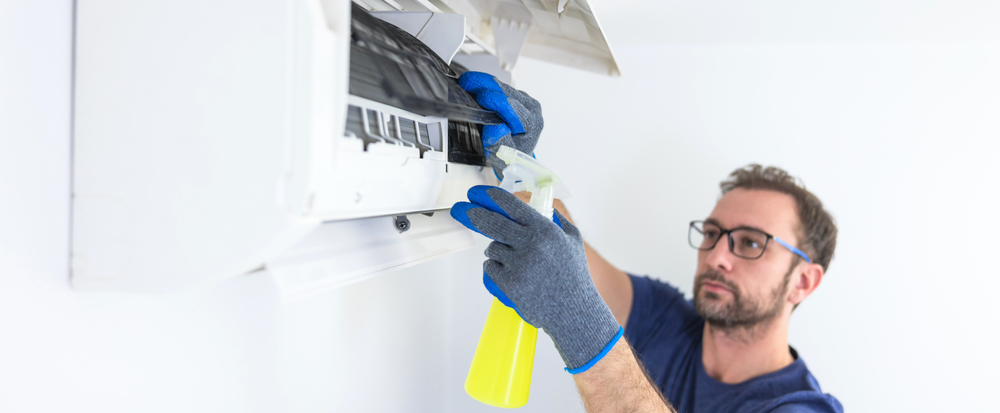This article will provide an in-depth guide to selecting the appropriate air conditioning system, hiring a professional installation service, pre-installation processes such as assessment, sizing, and measurement, installation processes including preparation and testing, post-installation processes such as maintenance, troubleshooting techniques, and common issues.
Choosing The Right Air Conditioning System
It is a critical decision affecting the comfort of your home and budget. Different types of air conditioning systems include central air conditioning, ductless mini-split systems, window units, and portable air conditioners. The choice of system depends on factors such as the space’s size, the building’s insulation, and the number of occupants.
When selecting an air conditioning system, it is essential to consider energy efficiency ratings, such as the Seasonal Energy Efficiency Ratio (SEER) and Energy Star ratings. These ratings provide information on how much energy the system uses and how much money it can save you in the long run.
Other factors to consider are the cooling capacity of the system, the noise level, and the warranty. It is advisable to consult with an HVAC professional to help you decide on the best air conditioning system for your needs.
Hiring A Professional Air Conditioning Installation Service
Hiring a professional air conditioning installation service is critical to ensure that your air conditioning system operates efficiently and lasts for a long time. Professional installation services have the expertise and experience to handle any air conditioning installation project, regardless of its complexity.
When hiring a professional air conditioning installation service, one must check their credentials, such as licenses, certifications, and insurance. These credentials show that the installation service is qualified and trustworthy for the installation project. It is also essential to check for references and reviews from previous clients to understand their work quality and customer service.
Before hiring an installation service, it is important to ask them questions about their experience, installation process, and warranties. This helps to ensure that you are getting the best value for your money and that the installation service can handle any unexpected issues that may arise during the installation process.
Pre-Installation Process
The pre-installation process is crucial in ensuring that your air conditioning system is installed correctly and functions optimally. Assessment of the installation area involves evaluating the space where the air conditioning system will be installed.
The HVAC professional will check for factors such as the insulation of the building, the number of occupants, and any potential obstructions that may affect the installation process.
Proper sizing and measurement are critical to ensuring the air conditioning system is appropriately sized for the space. This involves calculating the cooling capacity required for the space based on factors such as the room’s size, the building’s insulation, and the number of occupants.
Electrical requirements ensure that the electrical wiring and outlets in the installation area meet the system’s electrical requirements. This includes checking the voltage and amperage of the system and ensuring that the electrical wiring can handle the system’s electrical load.
Installation Process
Preparation involves preparing the installation area by clearing any obstructions and ensuring the area is clean and ready for installation. Installing indoor and outdoor units involves mounting them in designated areas and connecting the necessary electrical and refrigerant lines.
Ductwork installation involves installing the ducts that distribute the air throughout the space. The HVAC professional will ensure the ducts are properly sized and installed for optimal air distribution.
Testing involves ensuring that the system is functioning correctly and efficiently. The HVAC professional will perform various tests to check the system’s performance, such as checking the refrigerant levels, checking for leaks, and ensuring that the system meets the required electrical specifications.
Post-Installation Process
The post-installation process is essential to ensure that your air conditioning system operates efficiently and lasts for a long time. It includes clean-up, instruction on proper usage, and maintenance and servicing. These steps are vital to ensure that the system is installed correctly and operating at its maximum efficiency.
Clean-up is an important aspect of the post-installation process as it involves removing debris and cleaning up the installation area. The HVAC professional will dispose of any excess materials and ensure the installation area is clean and tidy. This ensures that the installation area is safe and clean for occupants.
Instruction on proper usage involves providing occupants with information on using and maintaining the air conditioning system correctly. The HVAC professional will provide information on how to operate the system, how to clean and maintain the system, and how to troubleshoot any issues that may arise. This ensures that occupants can use the system effectively and safely.
Maintenance and servicing are crucial to ensuring that your air conditioning system operates efficiently and lasts long. Regular servicing and maintenance will help prevent issues and ensure that your system operates efficiently. It is important to schedule regular maintenance with a qualified HVAC professional to ensure your system is in good working condition.
Summary
Air conditioning installation is a crucial process that requires careful consideration of several factors to ensure that the system operates efficiently and lasts for a long time. Choosing the right unit based on the size of the space, energy efficiency, and other factors is vital.
Hiring a qualified HVAC professional with experience in air conditioning installation is also important to ensure the system is installed correctly and all safety protocols are followed. The installation process includes site preparation, ductwork, wiring, and more, requiring professional expertise.
Regular maintenance should be scheduled with a qualified HVAC professional to ensure the system works well. By following these tips and recommendations, you can be confident that your air conditioning system will provide you with the comfort and reliability that you need for many years to come.


